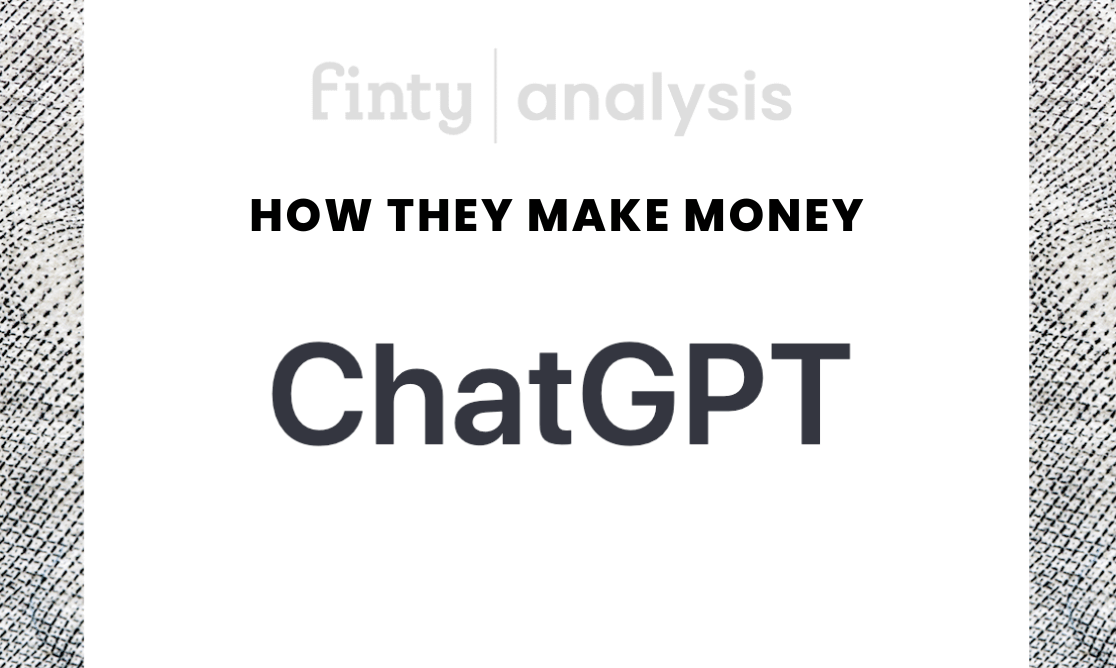ChatGPT is a cutting-edge natural language processing (NLP) platform developed by the OpenAI company.
ChatGPT, the conversational AI that took the world by storm, costs a fortune to run.
Responding to a question about monetization, Sam Altman, OpenAI's CEO, tweeted "we will have to monetize it somehow at some point; the compute costs are eye-watering."
Read on for more about how ChatGPT stands to make billions in revenue, even if it means burning huge amounts of cash in the short term.

Coming up next
What does ChatGPT do?
ChatGPT, the large language model (LLM) AI chatbot developed by OpenAI, allows users to interact with it using natural language. It is designed to answer questions, complete tasks, and generate human-like responses conversationally.
The platform runs on a version of the GPT language model. It is trained on vast amounts of data and has been fine-tuned over time to improve its performance and accuracy.
It has been used in many imaginative ways, including debugging and writing code, producing marketing content, writing YouTube scripts, creating ad copy, writing college assignments, and more.
How does ChatGPT work?
ChatGPT uses a transformer-based architecture to process and generate text highly efficiently. The platform has been trained on massive amounts of data to generate accurate responses to various questions and tasks.
The platform also uses a probabilistic approach to generate responses, allowing it to generate multiple possible answers to a given query. This allows for a more human-like and dynamic conversational experience.
It is designed to learn and improve over time continuously with feedback from users.
How ChatGPT makes money
ChatGPT makes money by charging a subscription fee to access it without restrictions or rate limiting.
Subscription fees
Given its popularity and immense burn rate, it was only a matter of time before ChatGPT introduced a paid version. Launched in February 2023, ChatGPT Plus is available for $20 / month. For that, subscribers can use ChatGPT without interruption — which free users will still experience when demand is high — and get faster responses due to priority access to compute power.
Partnerships and integrations
The company also offers custom solutions for enterprise customers, allowing them to integrate the platform into their existing systems and processes.
Additionally, the company generates revenue through partnerships with other organizations that use ChatGPT to enhance their existing products and services.
One of the best examples of this is Bing's new and improved search, where ChatGPT has been integrated so that users can ask questions in natural language and receive a detailed answer without visiting a different website. Microsoft also intends to integrate ChatGPT into its productivity software, for example, making it easy for users to ask how to write a formula in Excel or improve an article in Word.
Future growth engine
ChatGPT is well poised for significant growth as the demand for AI technology is forecast to increase. The company will likely continue expanding its enterprise solutions and partnerships while exploring new and innovative ways to utilize its platform. Additionally, the company may look to expand into new industries and markets, such as healthcare and finance, as demand for NLP technology grows in these areas.
Risks
- Competition. ChatGPT faces significant competition from a number of well-established players in the NLP space.
- Dependence on data quality. The accuracy of the platform depends on the quality and quantity of data it is trained on.
- Technical limitations. Despite its advanced capabilities, ChatGPT is still subject to technical limitations and may not always provide accurate answers. It also has been trained to give long answers and doesn't always ask clarifying questions to better understand what is being asked of it.
- FUD. Suffice to say, the public perception of AI is not exclusively positive.
Competitors
Although ChatGPT/OpenAI are early leaders, they are not the only company investing huge sums of money in AI technology.
- Google. Rushed out a version of their AI-upgraded search results shortly after Microsoft announced their own AI-enabled Bing search and was derided by some Googlers. However, Google is a leader in AI and will not be pushed over easily.
- Apple. Although not the first company to come to mind, Apple has invested heavily in ML and AI for years. Their key differentiation is that most of their computation happens locally on the device in a privacy-preserving manner, which some say is a limitation.

